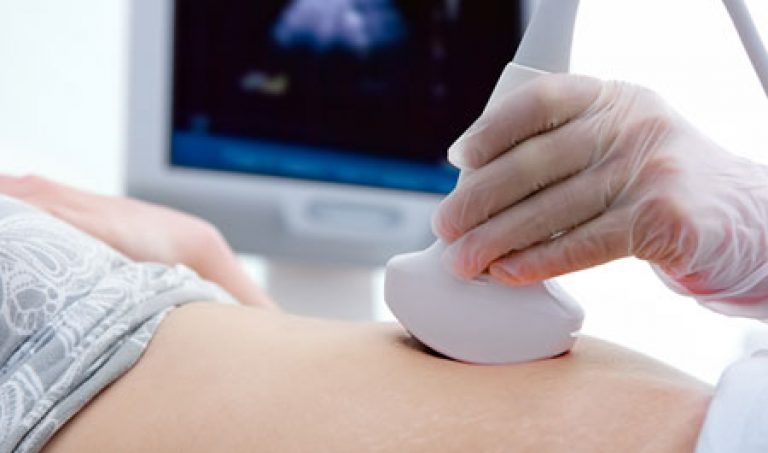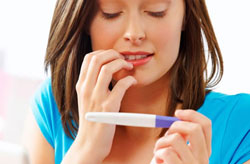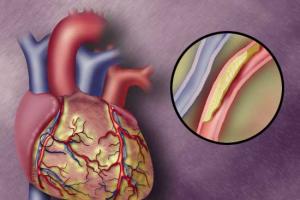For many women, early diagnosis of pregnancy is critical. But it is not so easy to establish pregnancy in the first 1-2 weeks, many of its signs are not specific and are present in other conditions or diseases.
The subjective feelings of a woman are often deceptive and vague, so the final conclusion about pregnancy or its absence is made on the basis of an examination by a doctor and after medical research.
Pregnancy does not begin immediately after the union of the egg with the sperm. First, the egg must travel through the fallopian tubes and into the uterus.
There, her task is to successfully attach to the wall to continue growth and the formation of the placenta. But this may not happen for various reasons - the cell may die during the movement or the endometrium in the uterus will not be ready to accept the fetal egg.
On average, the period of cell advancement from the ovary to the uterus ranges from 1 week to 10 days. This means that it is not necessary to expect signs of pregnancy during the very first week after the alleged fertilization. Such signs simply can not be.
The earliest symptoms of pregnancy can be divided into those that usually occur even before the delay of menstruation, and those that appear after the delay.
- Basal temperature readings.
To measure it correctly requires some skill, otherwise the results will be incorrect and this will lead to erroneous conclusions about the presence or absence of pregnancy.
In addition, an increase in basal temperature after ovulation can only indicate nervous overexcitation or a cold.
If the measurements are carried out correctly, then the remaining elevated temperature in the postovulation period can confidently indicate the onset of pregnancy.
- Pain in the lower abdomen.
 They are caused by the fact that the fetal egg, once in the uterus, tries to attach to its wall. This process is accompanied by unpleasant sensations. During this period, there may be some bleeding.
They are caused by the fact that the fetal egg, once in the uterus, tries to attach to its wall. This process is accompanied by unpleasant sensations. During this period, there may be some bleeding.
But pain sensations of varying intensity occur in pregnant women, and with a possible miscarriage, and before the start of the cycle.
Too much pain, especially with an increase in overall body temperature, may be. This is a life threatening condition.
If in any doubt, you should visit a doctor.
- Unusual sensations in the mammary glands.
The feeling of engorgement or soreness at the beginning of the cycle is often found in women of childbearing age and speaks of the usual cyclic processes occurring in the glands, and not of a conception that has occurred.
Often during pregnancy, there are signs such as darkened halos and blue veins appearing through the skin of the breast. The sensitivity of the nipples increases.
Some women note severe soreness of the glands, which does not even allow them to be touched. After about a month, this pain goes away.
- Changeability of mood.
This is how the increased content of estrogen in the body can manifest itself. This hormone affects the mental state, increases irritability and nervousness.
A woman is not able to fully control herself, even if she understands that her behavior does not correspond to the situation.
- Constipation or diarrhea.
The increased content of hormones in the body relaxes the intestines, preparing a place for the future fetus. The intestines begin to work worse.
More often this is expressed in the weakening of motor skills, which leads to constipation and bloating.
- Enhanced sense of smell.
Under the influence of hormones, many odors become unpleasant, causing nausea. This is especially true for the smell of food. Most women face this problem from the very first days of pregnancy.
In addition, the nasal mucosa becomes looser and swollen, it feels like nasal congestion.
- Change in taste habits.
The hormonal restructuring that has begun leads to the fact that ordinary food may seem bland and tasteless. From here came the common expression that pregnant women are drawn to salt.

- Absence of another menstruation.
It is on the delay in the onset of menstruation that attention is paid in the first place.
But it must be borne in mind that a few days of delay cannot yet reliably indicate the onset of pregnancy, since the cycle can go astray for various reasons - nervous experiences, illness, etc.
- Allocations.
In some cases, a change in the nature and amount of discharge can be a sure sign of pregnancy. We are talking about the usual discharge (cervical mucus), characteristic of ovulation, and not about spotting.
During the period of ovulation, the mucus becomes thicker than usual, and then again acquires a more liquid structure. If pregnancy has occurred, the discharge remains thick and after the ovulation period, it can become quite plentiful.
You can try to figure out the nature of the discharge yourself. To do this, you need to easily squeeze a small amount of mucus with your thumb and forefinger and then spread them apart. If the mucus stretches, pregnancy is possible.
- Positive pregnancy test.
If both stripes are clearly visible, then errors are practically excluded. All other signs are not so reliable and important.
You need to know that the test will be positive even with an ectopic or missed pregnancy, as well as the first time after a miscarriage.
- Medical examination.
With a vaginal examination, you can confidently establish the presence of pregnancy for a period of 5 weeks. The results of the inspection are also among the most reliable data.
Before this date, conclusions may be inaccurate.
Ultrasonography.
This method allows you to see the implanted egg almost immediately after implantation. Such a study is usually used in cases where there is a suspicion of a frozen or ectopic pregnancy.
As a rule, ultrasound is not used to confirm signs of pregnancy in the early stages.
 These symptoms and conditions can be either signs of an onset pregnancy, or they can mean absolutely nothing or become symptoms of a disease.
These symptoms and conditions can be either signs of an onset pregnancy, or they can mean absolutely nothing or become symptoms of a disease.
Before drawing conclusions about something, it is necessary to take into account other signs that always accompany the onset of pregnancy.
Possible signs of pregnancy include:
- delayed menstruation;
- dizziness and weakness;
- increased fatigue and drowsiness;
- nausea;
- changeable mood;
- frequent urination;
- constipation or diarrhea;
- increased sensitivity of the breast and a change in its size;
- change in the nature of the discharge.
Reliable signs of pregnancy in the early stages
 After the successful implantation of the egg in the endometrium of the uterus, the body begins to produce a hormone called human chorionic gonadotropin (hCG).
After the successful implantation of the egg in the endometrium of the uterus, the body begins to produce a hormone called human chorionic gonadotropin (hCG).
It is designed to preserve and maintain the activity of the corpus luteum, which produces progesterone, which is necessary to maintain pregnancy.
In addition, there is a theory that at an early stage, hCG protects the embryo from being destroyed by the immune cells of the mother's body. The mother's immune system can perceive the nascent organism as a foreign formation. The normal content of gonadotropin does not allow this.
Therefore, the most important sign of early pregnancy is the presence of human chorionic gonadotropin.
Its presence in the body can be determined by a blood test or a pregnancy test, which can be freely purchased at a pharmacy.
In order for the test to show the correct result, it must be carried out correctly. Testing is done in the morning, when the concentration of hCG is maximum. For test strip only freshly collected urine is used.
Inkjet test more convenient to use, since urine does not need to be collected.
This type of test is more sensitive and is able to detect pregnancy a few days before the expected start of the cycle, while a regular test strip gives a result only after a delay.
If done too early, any test can show a negative result.
All female organisms are so different that the signs of pregnancy can always manifest themselves in different ways, from the almost complete absence of unpleasant symptoms to their full set.








